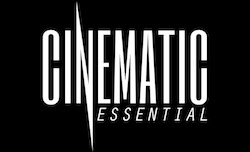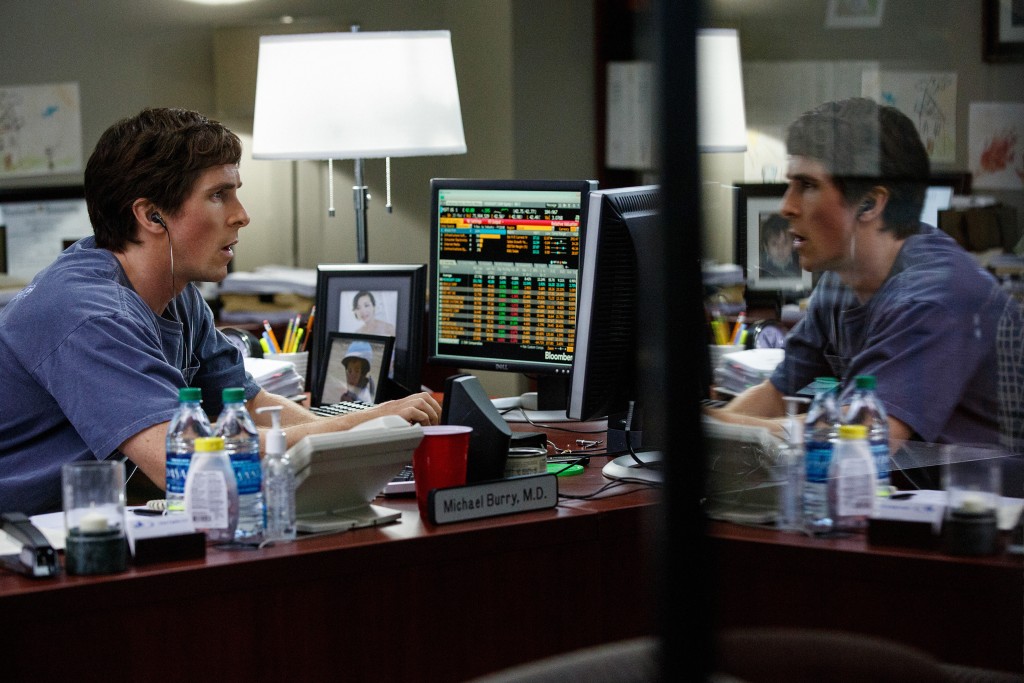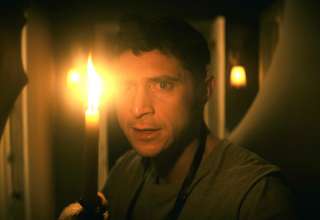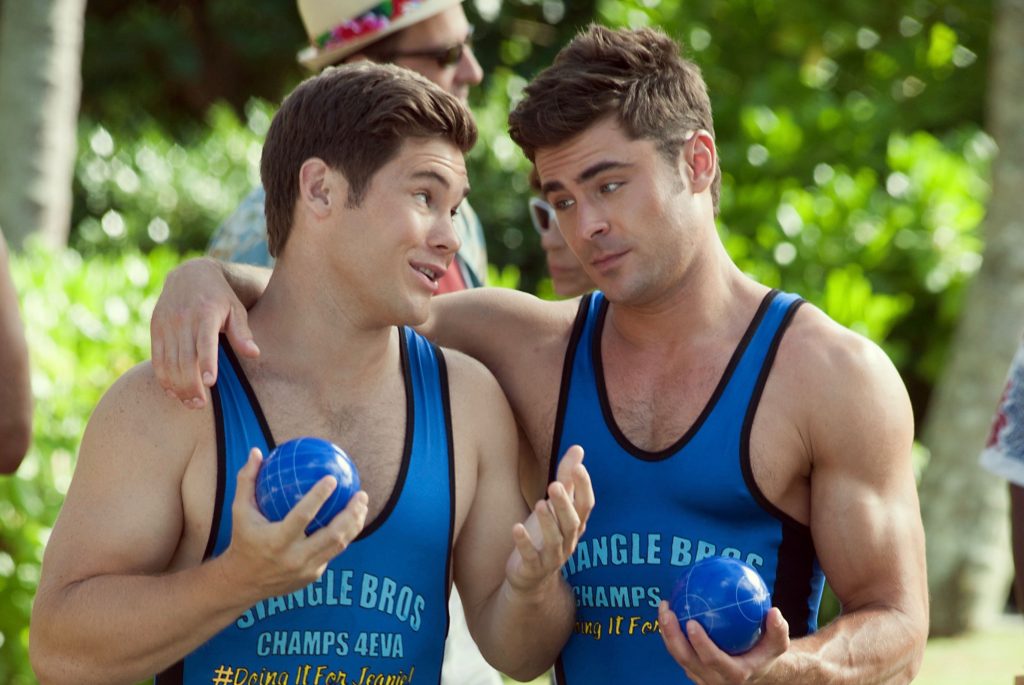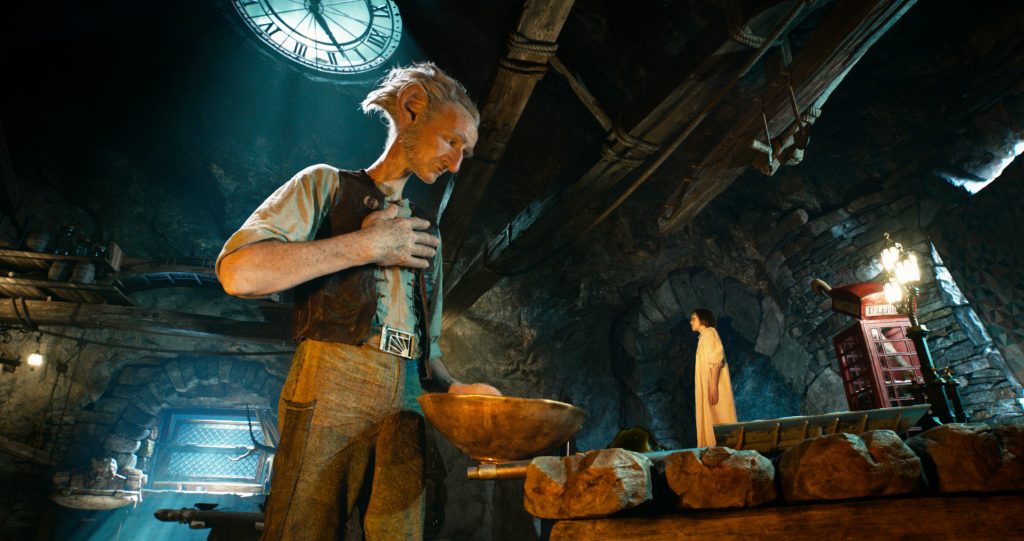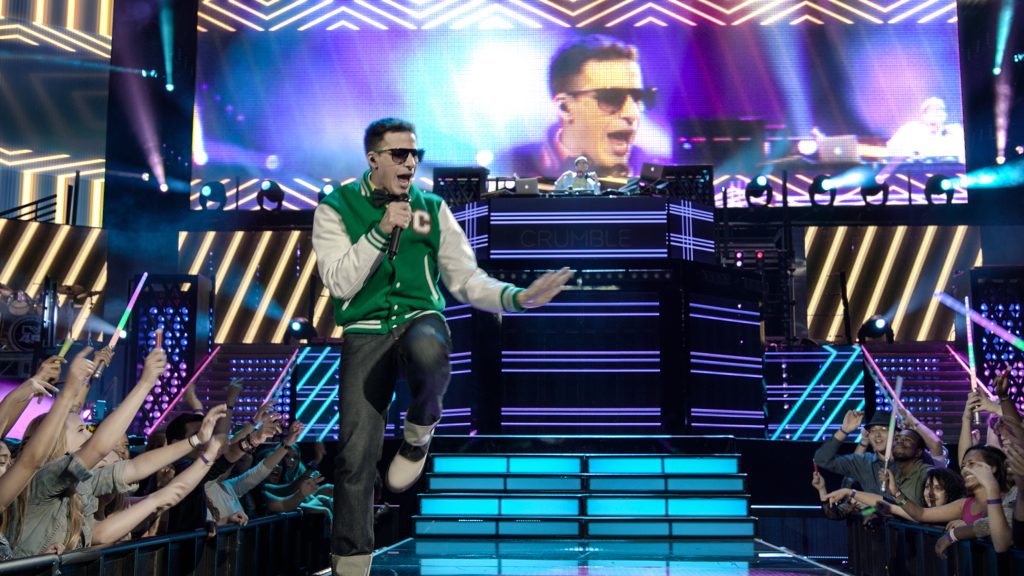Beyond blatant social and political flubs, one of the worst offenses a film can commit is assuming its audience is made up entirely of idiots. Films that talk down to the audience, or over explain the plot, feel like having a conversation with a person who is certain they are smarter than you and want you to know it. They feel belittling and frustrating. The Big Short deals with a complicated topic, and tries to keeps its lessons entertaining, but it never really hides the fact that it thinks very little of its audience.
Based on the book by Michael Lewis, The Big Short tells the tale of last decade’s real estate collapse through the perspective of three different investing groups. In parallel stories, a lone wolf savant (Christian Bale), a small independent investing group (lead by Steve Carell), and a pair of newcomers all discover that there is something about to go horribly wrong with the housing market. Loans are being given out to millions of families who have no solid financial standing, only to be bundled and rebundled beyond recognition and sold to the next bidder. These investors could see the demise coming like a very slow train wreck, while no one else in the finance world believed it to be even a remote possibility.
The film is told in overlapping narratives of these groups, and a voiceover from a very cheeky Ryan Gosling. Occasionally the story comes to the edge of what the filmmakers assume the audience knows about the housing market, at which point is pauses to have a celebrity (Margot Robbie, Anthony Bourdain, and Selena Gomez) step in to break the forth wall and explain the structure of the economics of what is going to happen over the next thirty minutes in the film. Though the conceit is an interesting way to address the vast hollows of layman’s financial knowledge, the effect comes across as belittling. The film’s action is stopped dead in its tracks because the film knows we are unable to follow the plot beyond this point. Part of me admires the innovation in ditching the typical story structure, but a bigger part of me is annoyed that they could not figure out a way to make the film’s plot cohesive enough to be followed. When someone is telling you a story, but they must periodically interrupt themselves to give you background information as they go, this is not the sign of a good story teller. The overall effect is light and funny, as the film tries to keep the mood peppy and conversational, but being talked at about topics which could have been naturally embedded in the film shows the audience what the filmmakers think of them.
The saving grace of The Big Short, and the main reason I truly enjoyed the film despite its narrative hiccups, is the cast. Bale, as always, immerses himself so far into the role you nearly forget his is not really a dismissive super genius. Carell and his entire team (Jeremy Strong and Hamish Linklater) have a dynamism that makes me forget how boring financial trading actually is. Brad Pitt even makes an appearance as the seasoned but retired trader brought in to help the younger hedge fund (Finn Wittrock and John Magaro) get into the game. No one actor is the lead in the film, and each of them delivers an honest and relatable performance that makes you care about economics. I consider that a coup.
With its constant winking at the camera and celebration of how clever it thinks it is, The Big Short is teetering on the precipice of being too cutesy for its own good. Had it spent even a fraction more of its running time patting itself on the back it would be in danger of being insufferable. But it never actually falls off the cliff. Instead it reigns it in and acts as a vehicle for one of the best ensemble casts of 2015.
Rating: R
Director: Adam McKay
Cast:
Christian Bale
Steve Carell
Ryan Gosling
Brad Pitt
Melissa Leo
Hamish Linklater
John Magaro
Rafe Spall
Jeremy Strong
Marisa Tomei
Finn Wittrock
Release Date: December 23, 2015
Film Length: 130 minutes
Distributor: Paramount Pictures
